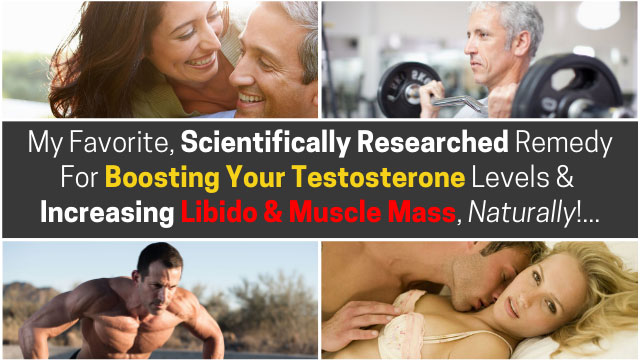Ketogenic diets are “back again” in the “diet” world. Every week I get asked about how ketogenic diets affect:
- testosterone levels
- cholesterol
- weight loss
- thyroid levels
- blood sugar
- so on and so forth
I will discuss each of these important topics, individually… in another article.
Real Truth About Keto Diet
However, today I want to discuss the real truth and clinical facts about how ketogenic diets affect your testosterone levels and thus, your muscle mass, fat loss, mood, and sex drive.
And why should you listen to me?… well, other than the fact I’m an anti-aging, endocrinology (hormone) doctor… I actually did my first ketogenic diet almost 25 years ago!
I also helped write a book about this topic a couple of decades ago.
And I had spoken to one of the pioneer doctors about this topic, Dr. Atkins …, and how it affected his patients – both in the short and long run.
So… you can say I’m a bit of an “expert” and have “been there, done that”.
And bring up this topic today because Timothy asked in one of my video comments:
“I’ve been following a ketogenic diet for the past 5-6 weeks and I wanted to know if it makes my testosterone levels better or worse? I ask because I am losing weight and I felt good the first couple of weeks. But I’ll be honest with you, I kinda feel like crap now. I think the weight I’m losing is a lot more muscle and my sex drive is down the toilet!”
I’m glad Timothy brought this up because what he is going through is typical and it’s even worse for women I’ll explain why and how you can fix this.
How Keto Affects Your Hormones
So in regards to testosterone levels – yes, ketogenic diets can dramatically drop your levels and screw up a lot of your hormones, especially your stress hormone, cortisol.1,3
So as cortisol goes up, your testosterone goes down. And for women, it also causes hormonal imbalances and can really mess up their menstrual cycles long-term.
I’ve seen these negative hormonal changes over and over again during the years, including in myself. I personally feel horrible on Ketogenic diets. Granted, some people like them.
But hormonally speaking, the majority of blood tests I’ve seen over the years, almost always caused negative changes in your youth hormones – especially your testosterone and cortisol ratios.
In fact, a study showed that by just by reducing your carbohydrates down to 30% of your calories, testosterone levels dropped by 36%!5
And this was just 30% of calories – A ketogenic diet is only 5% carbohydrates, so can just imagine how much LOWER your testosterone will be.
In fact, the results are even worse with Olympic athletes and weight lifters.4
So What’s The Solution
IF you really want to follow a ketogenic diet, do one that’s cyclical. Maybe 5 days on, 2 days off… where you “carb-up” during the 2 days “off”.
And limited the ketogenic diet for only a few weeks or a couple of months at the most, until your reach your goal.
If you want to follow it long-term, just monitor your hormones, and how you look and feel. Remember, carbohydrates aren’t evil. There are “good” and “bad” carbs.
In fact, when glucose levels are present in your blood, your brain signals your body to stimulate testosterone production. However, when glucose is depleted, testosterone synthesis also decreases.6
A Clinically Researched, “Quick Fix” Solution
However, if you want to boost your testosterone levels, while ALSO improving the balance of your other hormones — such as female and stress hormones, check my special formula.
You can “copy” the testosterone boosting formula anytime you want to build more muscle, lose belly fat and increase your libido.
You can use it during a Ketogenic diet to help prevent the testosterone lowering effects.
Or you can just use it with any type of diet or workout plan, to optimize your hormones, so you can look and feel young.
- Yancy, WS et al. A Low-Carbohydrate, Ketogenic Diet versus a Low-Fat Diet To Treat Obesity and Hyperlipidemia. Annals of Internal Medicine. 2004; 140: 769-777
- Neal, EG et al. The ketogenic diet for the treatment of childhood epilepsy: a randomised controlled trial. The Lancet. Neurology. 2008; 7(6): 500-6
- Lane, AR et al. Influence of dietary carbohydrate intake on the free testosterone: cortisol ratio responses to short-term intensive exercise training. Eur J Appl Physiol. 2010; 108(6): 1125-31
- Gleeson, M et al. Modification of immune responses to exercise by carbohydrate, glutamine and anti-oxidant supplements. Immunology and Cell Biology (2000) 78, 554–561
- Anderson, KE et al. Diet-hormone interactions: protein/carbohydrate ratio alters reciprocally the plasma levels of testosterone and cortisol and their respective binding globulins in man. Life Sci. 1987; 40(18): 1761-8
- Roland, AV et al. Regulation of gonadotropin-releasing hormone neurons by glucose. Trends Endocrinol Metab. 2011; 22(11): 443-9




